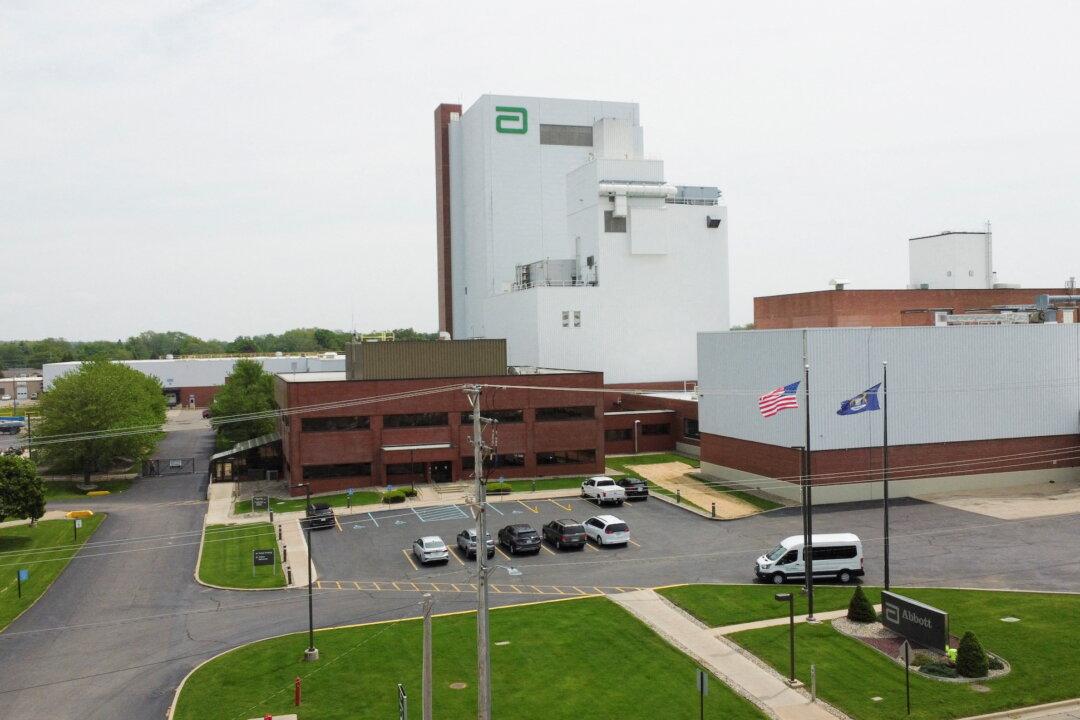Production at a major baby formula plant in the United States is being delayed after storms hit Michigan this week.
Abbott stated on June 15 that it was halting production of a specialty formula at its plant in Sturgis, Michigan, to assess flooding damage caused by the storm and clean and resanitize the plant.





